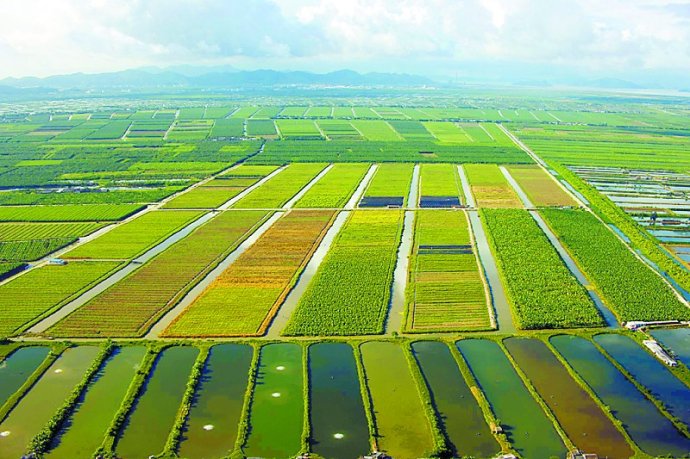Agriculture is one of the oldest industries in human history. By learning to grow crops and domesticate livestock, ancient human societies avoided the necessity of moving in search of food. Therefore, our ancestors had the opportunity to choose a fixed place of residence and establish towns and more complex societies. Thanks to agriculture, humans could focus on thinking about other things, like the world around them, and gave rise to philosophy and science that ultimately drove us to our current civilization.
Agriculture has and will become a fundamental activity for human survival and evolution, but as humans continue to develop new technologies and processes, agriculture itself is also constantly evolving. Today, agricultural production faces new challenges and requires new and more efficient methods.
The biggest challenges may be global warming and rapid population growth. As the population grows, agricultural production must increase productivity to meet the needs of the growing population. Still, global warming continues to harm crop and livestock yields. Therefore, constant monitoring of environmental factors, preventive measures and the ability to react quickly to problems play a decisive role in the success of agricultural production.


In agricultural production, some of the most common environmental factors that should be monitored and controlled are humidity, temperature, and light. In addition, activities such as irrigation, fertilization, pest control, and livestock feeding and care should also be performed regularly. This series of actions can be easily accomplished with a small number of crops and a few livestock, but what about a vast farm with tens of thousands of livestock and a variety of crops?
Think about how much time it takes a farmer to walk across a vast farm and check on the growth of crops and livestock one by one. This can be very difficult, which means it takes a lot of people, a lot of time, and can waste a lot of resources. How great would it be if some technology could automatically complete these tasks in a highly efficient, cost-effective, and time-saving manner? And the Internet of Things can make this possible.
To ensure yield and quality, most crops need to be grown under specific and controlled environmental conditions. IoT enables farmers to monitor crops in real time and remotely and understand parameters such as temperature or soil moisture that affect crop health. It is now possible to install simple and convenient equipment around crops to monitor crops in real time. These devices collect information on required parameters through various sensors and send it to the cloud where it is stored, visualized and analyzed with the help of IoT platforms.
In addition to monitoring, IoT systems also allow alarm configuration, which means farmers don’t need to check data all the time: when something goes wrong, they are alerted immediately. Therefore, preventive and corrective measures can be taken in time to avoid losses. If a more complex solution is required, farmers can turn to IoT systems to help automate operations, depending on established custom conditions based on parameter behavior, for example based on soil moisture, the system can know the exact timing of crop irrigation and based on these values , the irrigation system can be configured to automatically start and finish when needed.
Some of the most common applications of IoT in agriculture include:
● Automatic irrigation
● Smart greenhouse
● Monitor climate conditions (rainfall, humidity, temperature, etc.)
● Control pests with drones
● Monitor livestock health
● Monitor livestock location
By analyzing the data collected by IoT systems, more efficient and smarter agricultural production can be developed to increase yields, save money and time. Regardless of the size of the farm, IoT offers a variety of solutions for agricultural production, helping farmers take control.